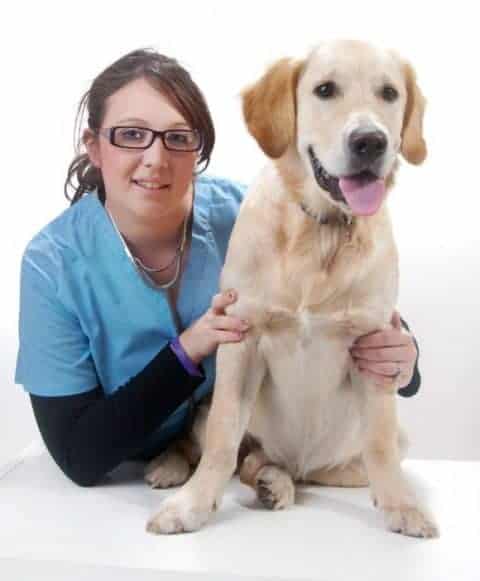Answering the question, ‘What’s the difference between a Veterinary Assistant, Veterinary Nurse and Veterinary Technician?” is one we are often asked. In the veterinary medicine world, many career paths can be followed, each of which holds different responsibilities and requires various levels of education or certification to qualify. For someone being introduced to the field, the number of titles and the distinctions between them can seem overwhelming, but each role has distinct duties and functions within the veterinary system. It is a rapidly evolving, high-impact area of study that offers opportunities for many tiers of work.
 Veterinary Nurse Assistant or Veterinary Care Assistant
Veterinary Nurse Assistant or Veterinary Care Assistant
Assistant roles will primarily work under the supervision of a Veterinary Nurse. They may perform tasks such as feeding animals, monitoring their weight, cleaning their cages, cleaning equipment and workspaces and nursing animals after procedures.
Although no formal qualifications are required to pursue a career as a Veterinary Nurse Assistant or Veterinary Care Assistant, it is recommended that ACM20121 Certification II in Animal Care (formerly ACM20117 Certificate II in Animal Studies) or ACM30122 Certificate III in Animal Care Services (formerly ACM30117 Certificate III in Animal Studies) and previous experience handling animals are attained.
Veterinary Nurse
The job description of veterinary nurses is quite diversified. While veterinary nurses often assist in cleaning and sterilising cages and equipment, they also perform higher-level tasks such as aiding with the administration of anaesthesia during surgery, taking and running tests on blood and stool samples, performing basic dental procedures, preparing animals for surgery, and educating owners on proper aftercare. They work closely with veterinarians to provide both routine and emergency care. To work as a Veterinary Nurse, Vet Nurses are generally expected to have completed ACM40418 Certificate IV in Veterinary Nursing.
Veterinary Technician (Vet Tech)
In Australia, a Veterinary Technician, often referred to as a Vet Tech, must hold a Bachelor’s Degree in Veterinary Technology to be considered for the career. This is often more of an academic path than an applied one, as there are generally very few clinical roles for Veterinary Technicians in Australian general practice veterinary medicine hospitals.
If so, roles can be found mostly in emergency hospitals and specialist centres where they may recognise the higher level of knowledge and support that a Veterinary Technician can offer. In these cases, they may be able to alleviate the veterinarians’ workload. Veterinary Technicians may also take on supervisory and management roles within a hospital, although it is possible for an experienced and qualified Veterinary Nurse to assume similar roles.
Those interested in pursuing animal research, working in animal welfare, or teaching may find the Veterinary Technician path most relevant to their goals and interests. Generally, the scope of education of a Veterinary Technician is similar to that of a Veterinary Nurse, but with a more theoretical and research-based, instead of clinical, focus. Veterinary Technicians can study various fields, including diagnostics, zoos, poultry, cattle, or horse farms.
Are the terms Vet Nurse, Vet Care Assistant and Vet Technician the same everywhere in the world?
The use of this terminology varies widely worldwide as do the training and qualification requirements for each title. Because international definitions of the various job titles and their responsibility and scope vary across the US, the National Association of Veterinary Technologies in America (NAVTA) is working towards unifying standards within the field in America.
Vet Tech Courses vs Vet Nurse Courses: how do they compare?
Choosing which course is for you depends on a couple of factors.
- Course Cost: In Australia, you must complete a university undergraduate degree to become a Veterinary Technician, therefore, the costs are significantly more than completing the Certificate IV necessary to become a qualified Vet Nurse.
- Study time: The Vet Tech degree takes up to 3 years, whereas you can complete the national qualification for vet nursing in as little as one year.
- Prerequisite requirements: meeting course prerequisites will likely determine your course preference. There are university entry score requirements for the vet tech undergraduate degree and a prerequisite for the vet nursing certificate.
Choosing what’s right for you
Those seeking to enter the field of animal care, including veterinary medicine, whether it be a hands-on role or a career focused on research or teaching, can find a niche suited to their career goals. Those new to the field or considering gaining entry-level experience before the investment that extended education demands might consider working as a veterinary nurse assistant or animal carer. Those who have completed more advanced training and wish to assist in the more technical aspects of animal care may pursue veterinary nursing.
The more academically oriented, who prefer to teach about theories or ideas of animal care or to perform research that can optimise the field, may consider choosing the Veterinary Technician path in the University.
Various roles in veterinary medicine, including support roles, are competitive and highly desirable. Working with animals is widely considered to be a meaningful, satisfying and rewarding career choice and has suitable openings for a variety of educational levels and technical proficiency.
Other great resources
- ACM20121 Certificate II in Animal Care (Vet Nursing Pathway) – Start Now
- ACM40418 Certificate IV in Veterinary Nursing – Get Qualified
- Top 6 Animal Care Careers
- What qualifications do I need to become a Vet Nurse?
- How to become a Veterinary Nurse in Australia
- What subjects must I study in high school to become a Veterinary Nurse?
- Your guide to animal-care related qualifications – an overview of AVT courses
Your questions answered:
- What is a Vet Tech? What is a Veterinary Technician?
- About Veterinary Nurse degrees
- Is there a difference between a Vet Tech and Vet Nurse in Australia?
- How to become a Veterinary Assistant
- Vet Nurse v Vet Tech courses
- Animal Nurses – what are they called?
Start your Veterinary Nursing Career!
On-Campus Intensive
ACM20121 Certificate II in Animal Care (Vet Nursing Pathway)
About Vet Nurse Pathway
Vet Nursing Pathway
Online and On-Campus
ACM40418 Certificate IV in Veterinary Nursing
About Vet Nursing









